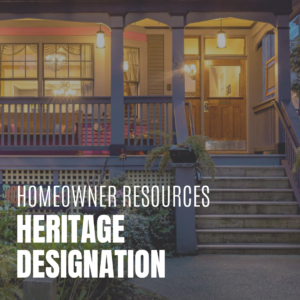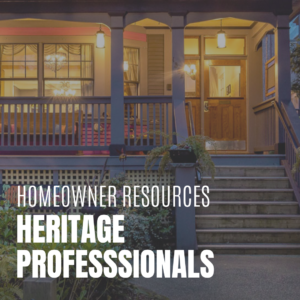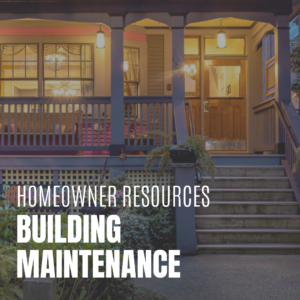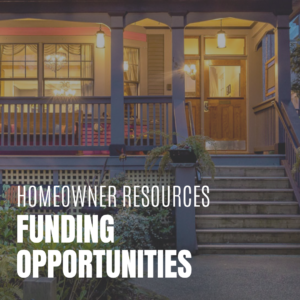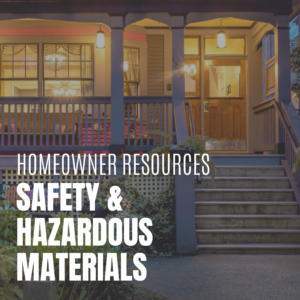- Heritage 101
- Advocacy
- Accessibility for Historic Places
- Climate & Sustainability
- Heritage Place Conservation
- Heritage Policy & Legislation
- Homeowners
- Intangible Cultural Heritage
- Reconciliation
- Indigenous Cultural Heritage
- Setting the Bar: A Reconciliation Guide for Heritage
- 1. Heritage and Reconciliation Pledge
- 2. Acknowledging Land and People
- 3. Celebrating Days of Recognition and Commemoration
- 4. With a Commitment to Learn
- 5. Committing to Strategic Organizational Diversity
- 6. Mission-Making Room for Reconciliation
- 7. Possession, Interpretation, Repatriation and Cultural Care
- 8. Shared Decision Making
- 9. Statements of Significance and other heritage planning documents
- 10. Heritage Conservation Tools, Local Government Act
- Racism: Do Not Let the Forgetting Prevail
- Taking Action: resources for diversity and inclusion
- Webinars On-Demand
Homeowner Resources: Building Code, Heritage Standards & Laws
Why it matters:
Every local government across BC has the authority to set rules and regulations around their heritage buildings. These by-laws and regional standards regulate how homeowners and property owners can adapt existing heritage structures.
At their most basic…
- Building codes provide special provisions for heritage buildings through alternative compliance or equivalences.
- Heritage standards help ensure that heritage buildings have a long future, for many generations to come.
- Heritage laws provide a provincial framework for how heritage properties can be registered, protected and how local government can regulate them.
- Heritage by-laws are how your local government implements the provincial framework. They will be unique to your community.
Information around codes and laws are often written in complicated language and can be difficult to find. The resources below provide simplified explainers for the pieces that are relevant to homeowners
For questions regarding by-laws in your community, we urge you to contact your local government and find out what is currently being regulated.
Resources
» Standards and Guidelines for the Conservation of Historic Places in Canada
» Quick Study: Heritage Laws in BC
» How Building Code affects Heritage
» Table 1.1.1.1.(5) of the British Columbia Building Code : Alternate Compliance Methods for Heritage Buildings
FAQ
What do I do if my local government does not have Heritage By-Laws already in place?
Just because your local government doesn’t have by-laws in place, it doesn’t mean that they don’t have heritage buildings recognized. They could have a community heritage register, conservation areas or other ways to recognize local heritage resources. Contact your local planning department to learn more about their heritage program.
Generally, a municipality without a heritage program will see these effects:
- Any buildings recognized as heritage in your municipality or regional district will be done on a case-by-case basis
- Provincial or national heritage registers could cover certain buildings in your community
- Without a heritage program, most historic buildings in your municipality will not qualify for the “alternate compliance for heritage buildings” in the BC building code
- Property owners will have full discretion on the adaptations, renovations, restorations or demolition of their old buildings
In communities where this is the case, advocating for the development of a local heritage program can lead to the protection of heritage places in your community. Become a heritage advocate and contact your local government about the value of heritage conservation at a community level.
Are there any levels of governance in BC that can help protect heritage homes in communities where local government does not have Heritage By-Laws in place?
Although the province prefers to leave heritage designation and protection to local government, provincial and national registers recognize certain heritage buildings. These are done on a case-by-case basis, and the degree of protection conferred to the buildings is varied.
How do I work with building code requirements when the work needing to be done on the home requires permits?
The BC Building Code sets out the minimum requirements for a safely built environment and is provincial regulation that governs new construction, building alterations, repairs, and demolitions. These requirements and regulations still hold when working on a heritage home, however there are alternate compliance methods detailed in Table 1.1.1.1.(5) of the BC Building Code.
Please note that the alternate compliance methods only apply to buildings that are “ legally protected or officially recognized as a heritage property by the Provincial government or a local government”. Buildings that are not recognized in this way are subject to regular BC building code compliance.
I am just beginning to work on conserving my heritage home, where should I begin in regards to building code, standards and laws?
The resources on this page are a fantastic starting point when beginning to learn about the regulations and guidelines set in place regarding heritage properties. The BC Building Code is your next best place to access information specific to regulations around construction. Table 1.1.1.1.(5) within the Building Code offers alternate compliance methods for heritage properties as well.
What are Conservation Standards?
The Standards and Guidelines for the Conversation of Historic Places in Canada was produced by Parks Canada and provides results oriented guidance on the conservation of historic places. Conservation standards can fall into three treatments:
Preservation: The action or process of protecting, maintaining and/or stabilizing the existing materials, form and integrity of an historic place or of an individual component, while protecting its heritage value.
Restoration: The action or process of accurately revealing, recovering or representing the state of a historic place or of an individual component, as it appeared at a particular period in its history, while protecting its heritage value.
Rehabilitation: The action or process of making possible a continuing or compatible contemporary use of an historic place or of an individual component, through repair, alterations, and/or additions, while protecting its heritage value.
The above conservation treatment definitions are taken from the Standards & Guidelines for the Conservation of Historic Places in Canada (2nd edition).

